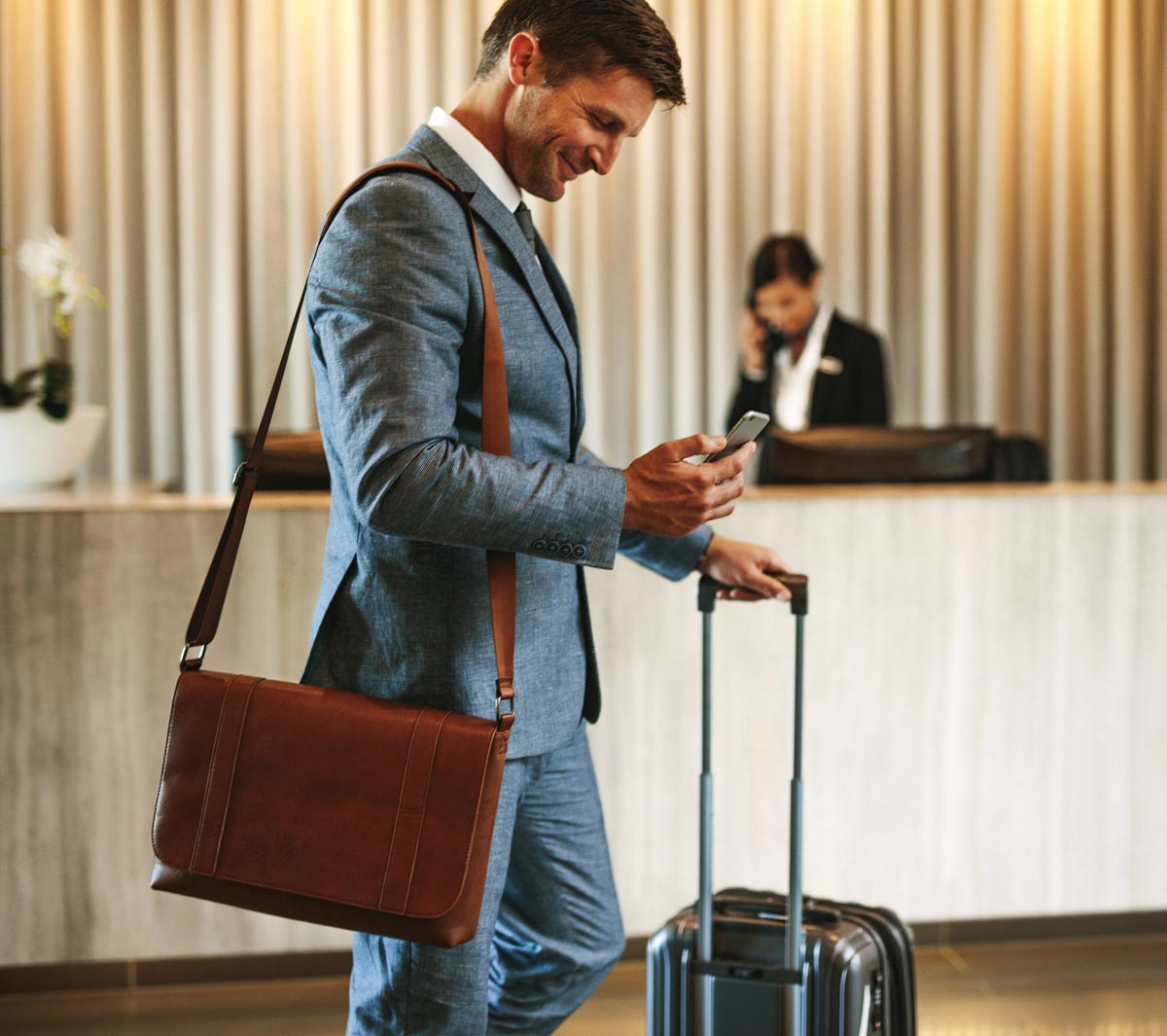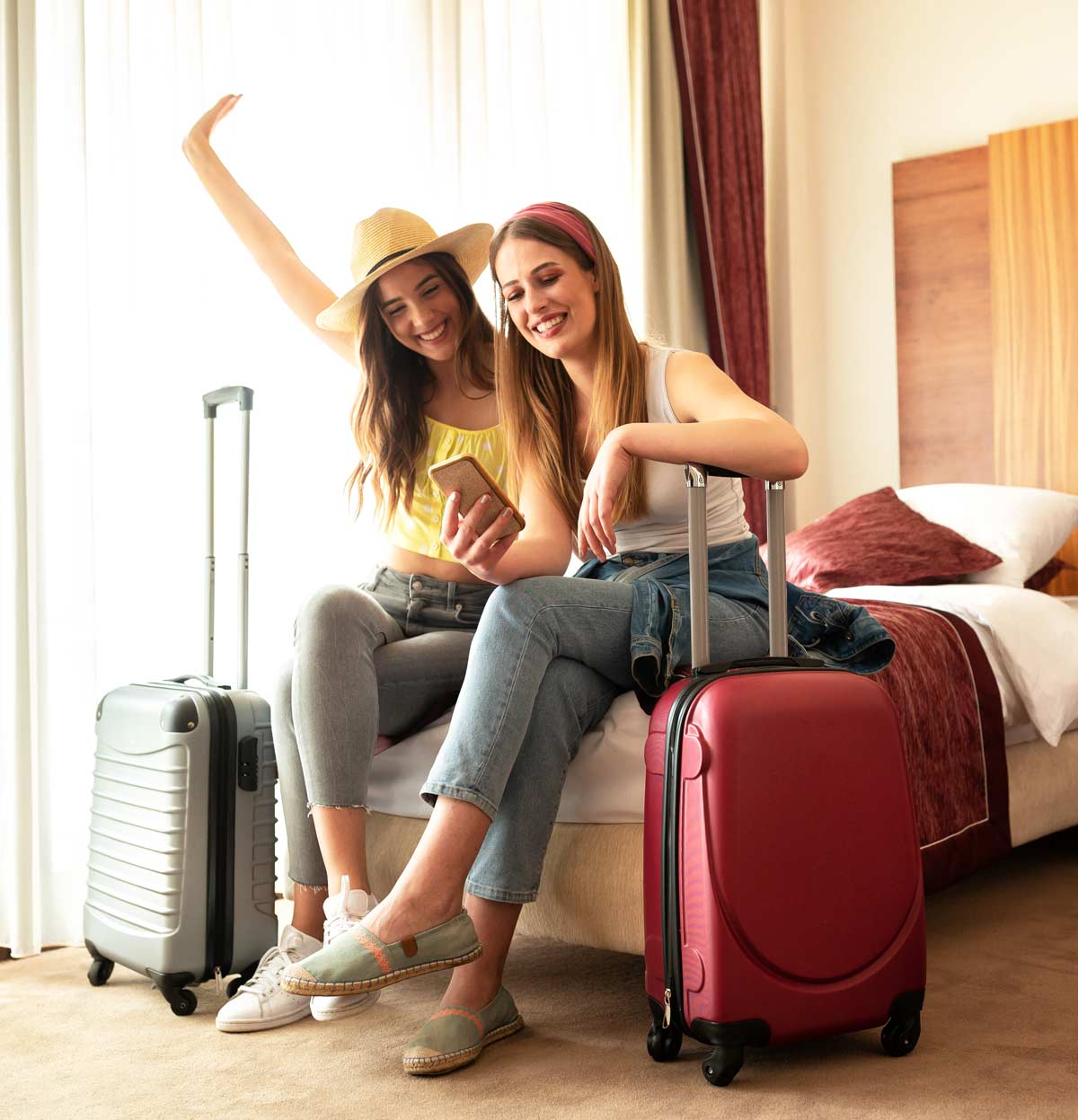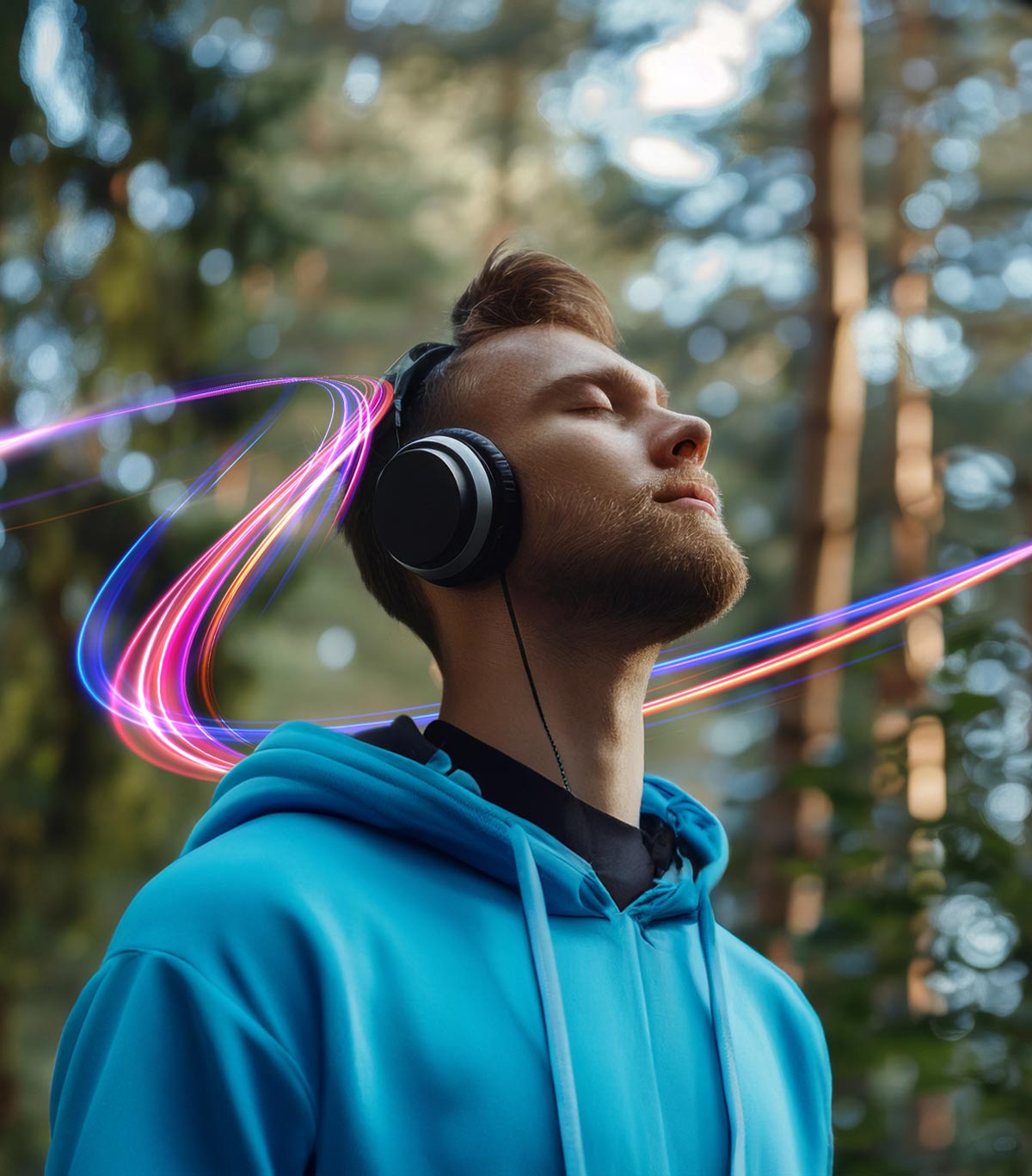Marketing for hotels
By putting data to work, hotels can reach new guests and keep them coming back
Room for improvement
Hotels remain the top choice for holiday accommodation, with 64% of UK holidaymakers staying in hotels compared with just 16% who book holiday rentals, and 12% who head to campsites.
But growth in the hotel industry is relatively modest, with the increase in revenue per available room (RevPAR) not quite reaching 2%, and profits fairly flat. As global hotel development is at a record high, the pressure is on for hotel brands to stay competitive in an increasingly saturated market.
It’s not an entirely equal playing field, with well-known international chains dominating the sector while many independent hotels struggle to maintain visibility. But every hotel — no matter its size — has access to one invaluable asset: data. Wielded effectively, data gives hotels the insights they need to find and connect with their audience, and keep them coming back.
Before we dive into the key challenges hoteliers are facing, let’s take a quick look at how travel trends are evolving, and what this means for the industry.
Evolving trends for the modern traveller
What people want from a holiday — even the concept of a holiday itself — has evolved considerably over the last decade, in line with the priorities of those travelling. The difference between travel and tourism has long been a contentious subject, but today prospective hotel guests are looking for many of the experiences traditionally associated with backpackers.
Authentic experiences are in!
A McKinsey survey investigated the most important factors travellers consider when choosing their next destination. The results? A substantial 63% prioritise the range and quality of local activities, while 62% think about the dining experiences available, and 58% consider the authenticity of the culture in the destination they plan to visit.
Travellers are slowing down
Similarly, the latest Hilton Hotels & Resorts trend report documents a rise in slow travel: the desire to escape the pacy bustle of everyday life and become immersed in another culture for an extended time. With this leisurely approach, holidaymakers look to travel in a less overtly “touristy” way, with 74% wanting recommendations from locals to help them track down the hidden gems.
Escape is on the menu
On the theme of slowing down, the same report spotlights a growing trend in “sleep tourism”, which centres around rest, wellness, and the chance to recharge. There’s even an upswing in travellers seizing the chance to digitally detox — with 20% saying they don’t pay attention to the news, and 24% admitting they now turn off social media while on holiday.
Kids get the final say
Meanwhile, the influence of Gen Alpha shouldn’t be underestimated. A considerable 63% of parents give their kids the final say on where they dine while travelling, while 55% are choosing hotels based on the kids activities available.
To thrive in an evolving travel landscape, the hotel industry must adapt, and learn to meet (or pre-empt) guest needs and priorities.
They need the insights to understand whether their guests are more likely to be tempted by historic and cultural excursions, exciting outdoor activities, or unique culinary delights. So, what are the key hurdles that stand between hotels and a five-star revenue, and how can data help to overcome them?

Three key challenges for hotel brands
Challenge #1: Standing out in a crowded market
Between the global cost of living crisis and the sheer number of options on the market, the hotel industry has never been so competitive. Figures from Lodging Econometrics pinpoint the most oversaturated countries for hoteliers — with the US accounting for 40% of all hotel developments, followed by China at 24%. And the UK has more ongoing projects than any other country in Europe.
Alongside the booming hotel market, holiday rentals are on the up. In Q4 2024 Airbnb reported $2.5 billion in revenue, showcasing a considerable increase of 12% YoY, as well as a growing share of the holiday rental market. In the post-pandemic world of flexible working, longer stays that blend business and leisure are more common, and Airbnbs are capitalising on that audience. While Airbnb restrictions are helping to boost hotel bookings and occupancy rates, this growth trajectory puts further strain on hotels.
Smaller, independent hotels and guesthouses are under particular pressure to perform, without the financial resources that international chains have to put behind their marketing, or the ability to rely on brand recognition for bookings.

So how can hotel brands cut through the noise to reach their target audience?
Hotels need to be more than simply “a place to sleep”, driving loyalty with unique, memorable, service-led experiences that are personalised to the needs and interests of their guests. With the right tools, hotels can extrapolate valuable insights from data and use them to inform their customer experience strategy.
A hotel might, for instance, leverage data to arrange a complimentary birthday surprise, ensure a family room is properly equipped, or offer discounted tickets to a nearby attraction. Small touches like this can make all the difference to guests, where they choose to stay next time, and whether they recommend a hotel to friends and family.
Data also empowers hotels to reach high-value guests, like travellers away on business who stay for long and regular stretches, or whole families on their annual holiday. Using data, hotels can offer dynamic pricing to incentivise a stay, or acquaint themselves with guests’ interests to identify relevant upselling opportunities.
“The key is balancing personalised experiences at each point in the guest journey, whether it’s during the check-in process or presenting compelling offers that our guests can use during their next stay. The way to find that balance is by using data to uncover what has worked in the past and adjust to new conditions in real time to achieve the optimal experience for each guest.”
— Billy Turchin
Head of CRM & Customer Experience at IHG

Challenge #2: Reducing dependence on third-party platforms
For a lot of hotels, listing on third-party platforms or online travel agents (OTAs) is non-negotiable. The benefits include global reach, user-friendly booking experiences, enhanced customer trust, and even timely cash flow as most OTAs process payments on behalf of their clients.
Yet overreliance on these platforms throws up a number of issues for hotels, from reduced profit margins to the valuable data they miss out on without a direct booking. OTAs are taking a big slice of the pie, with 50% of UK travellers saying they book via online accommodation websites, compared with 37% that book directly on the hotel website.

By reducing their dependence on OTAs and other third-party platforms, hotels can…
- Manage guest loyalty. Without a middle man, all related communications happen directly between hotel and guest; this gives hotels complete control over their messaging, and a better chance of getting guests registered with loyalty programmes.
- Take care of the guest journey, from end to end. Direct bookings also enable hotels to maximise the personalisation of every touchpoint, from pre-stay communications about room preferences right through to follow-up satisfaction surveys.
- Enjoy greater opportunities for upselling. A direct relationship with guests increases the potential for upselling, with opportunities to send well-timed offers like room service options, the spa treatment menu, or even basic add-ons like high-speed Wi-Fi.
Optimise data collection. Lastly — and most importantly — direct bookings give hotels a wealth of guest data that OTAs may prevent them from accessing. That data ranges from guest demographics, characteristics and browsing behaviour to booking preferences and history, and the details of any ancillary services purchased.
Keeping up with OTAs
Our travel and hospitality research reveals OTAs are significantly ahead of other travel brands in the use of data and technology. For example:
-
of OTAs are using AI-powered assistants, compared with just 53% of all travel brands.
-
of OTAs make recommendations based on customer data, compared with just 35% of all travel brands.
Maximising the power and potential of data and technology is vital for hotels to compete with these third-party platforms.

Seamless journeys start with smart marketing: the travel CX gap

Challenge #3: Keeping up with new marketing technologies
Like many mature industries, the hotel market has struggled with digital transformation, and the rapid evolution of marketing technology poses a particular challenge. Plenty of hotels still rely on old Property Management Systems (PMS) for daily operations, or rigid CRM platforms that are difficult to integrate with advanced marketing tools.
Similarly, the data hotels can use to inform their marketing strategies comes from a huge variety of sources. As well as PMS and CRM systems, these might be OTAs, social media, online review platforms, loyalty programs and more. These fragmented systems represent data silos, which prevent a unified view of the customers and make it difficult to understand and reach the right audiences with relevant, personalised messaging
On top of this, martech solutions themselves are varied and complex. Today’s platforms can facilitate hyper-personalised communications, automate customer journey mapping, and engage AI-powered targeting for digital advertising — and that’s just the tip of the iceberg — but hotel brands might lack the capability (or capacity) to effectively implement and optimise these tools to ensure a strong ROI.

Why integrate new marketing technologies?
Long gone are the days when marketing technologies were a “nice to have”. Today, they’re a vital piece of the puzzle for hotels looking to modernise their marketing, put their data to work, and stay competitive. Here are just a few of the things martech can do:
Sentiment analysis. AI-powered sentiment analysis allows brands to analyse social media posts and reviews across third-party platforms to capture key trends. They can also use automated reply templates to ensure no review goes unanswered.
Demand forecasting. With data analytics, hotels can accurately predict busy (and quiet) periods at a granular level, and take corresponding actions. This might mean promoting special offers to fill rooms during quiet periods, or switching to upsell campaigns during busier periods.
Personalised cross-channel communications. Equipped with a 360-degree view of the customer, hotels can tailor their messaging across every channel and touchpoint, from homepage banners to email campaigns and SMS reminders.
“The digital transformation in the hospitality industry has enabled new brands to quickly gain traction by leveraging modern technologies. The implementation of Artificial Intelligence (AI), contactless check-in systems, and data-driven personalization can significantly enhance the guest experience.”
— Gerald Lampaert
Founder & CEO at VERTU Hotels & Resorts
How Acxiom can help
Acxiom offers a range of solutions to assist hotels in putting their data to work. For instance, with our help, Hilton Grand Vacations was able to refine its targeting models and generate stronger, more qualified leads, resulting in 78% more marketable prospects and boosting sales performance by 35%.
Here are just a few of the ways we can help:
Martech services
Many hotel brands don’t have the capability or expertise to select, implement, and manage a whole suite of marketing solutions, let alone make sure they’re getting a good ROI. Acxiom acts as a strategic advisor and trusted martech services partner to big-name brands all over the world, helping organisations get the most from whichever martech platforms they choose to use.
Data management
With over 50 years experience, Acxiom is the global leader in data management modernisation. Using any data management platform, we empower hotels to unify and enrich their data, allowing it to drive marketing strategy and deliver real value, all without compromising privacy or compliance.
Identity resolution
Acxiom’s Real ID™ makes fragmented guest data a thing of the past. By bringing together first-party data and disparate data points across both digital and offline channels, hotels can recognise their guests every time they interact with their brand, no matter how or where.
Enhanced insights
Acxiom’s InfoBase is the UK’s leading source of anonymised consumer data, offering broad coverage and rich insight across the population. Hotels can use InfoBase to enhance audience understanding, refine segmentation strategies, and support marketing efforts with robust, privacy-compliant data that reflects real-world behaviours and demographics.
Meanwhile, InfoBasePurchase Transactions provides aggregated insights into actual consumer spending across a wide range of sectors, including travel and leisure. This enables hotels to identify high-value audiences, tailor offers based on past purchasing patterns, and support campaign planning with data rooted in real consumer actions.
Audience building
Our audience data service enables hotels to build accurate digital and offline audiences to leverage the power of precision targeting. With Acxiom’s prebuilt audiences, hoteliers can ensure communications are tailored to maximise impact and offer hyper-relevant offers and experiences to guests.
Omnichannel execution
With Acxiom’s help, hotel brands can easily execute seamless campaigns across all touch points, delivering consistent messages that resonate with hotel guests at every stage of their journey.

Time to check in?
While the hotel industry is thriving, competition is fierce and brands need to offer personalised experiences to get their voice heard. By putting data to work, hotel brands can reduce their reliance on third-parties, get ROI from marketing technologies, and reach the right audiences with personalised, meaningful experiences that will help them stand out from the crowd.
